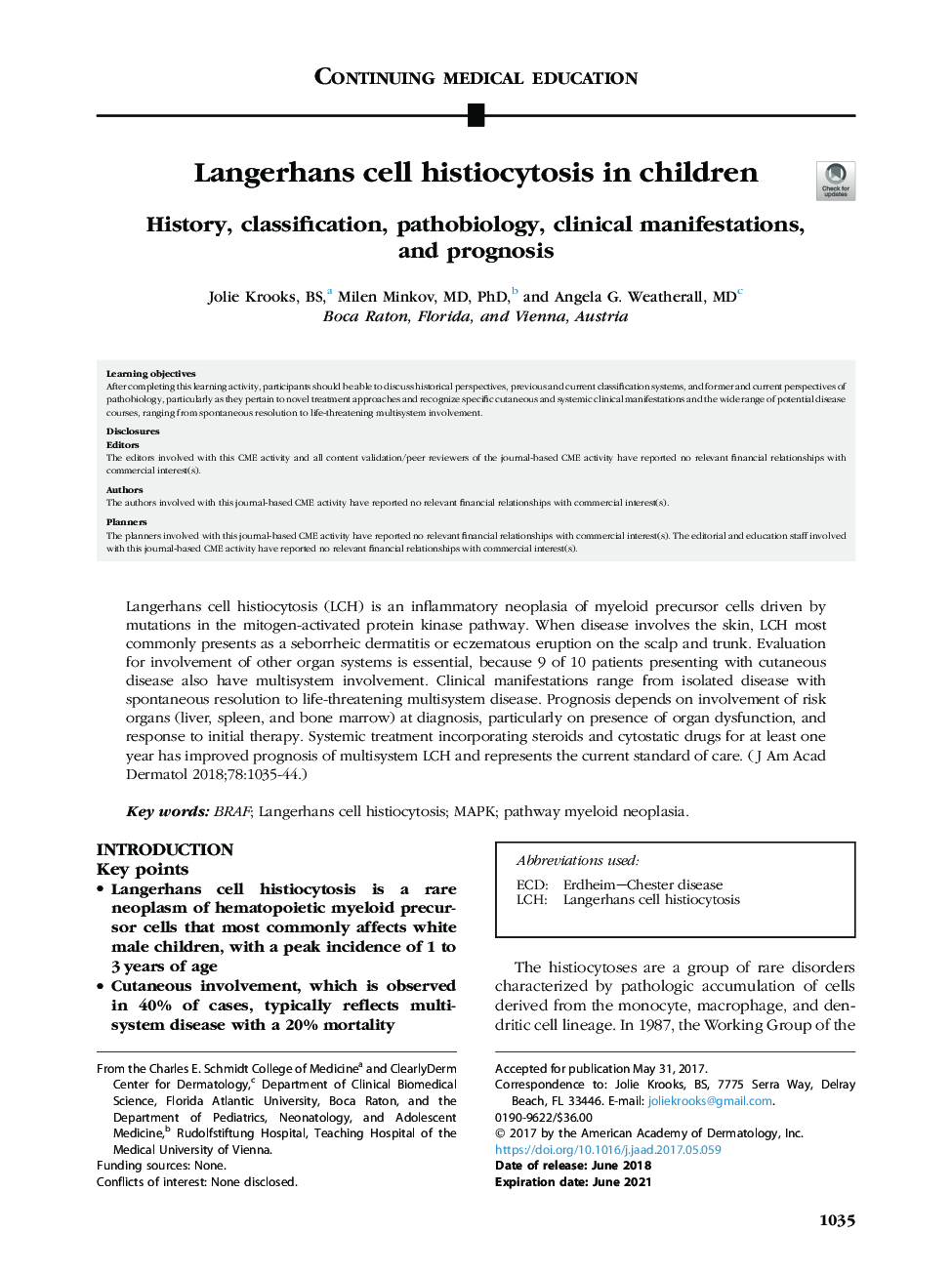| Article ID | Journal | Published Year | Pages | File Type |
|---|---|---|---|---|
| 8715000 | Journal of the American Academy of Dermatology | 2018 | 10 Pages |
Abstract
Langerhans cell histiocytosis (LCH) is an inflammatory neoplasia of myeloid precursor cells driven by mutations in the mitogen-activated protein kinase pathway. When disease involves the skin, LCH most commonly presents as a seborrheic dermatitis or eczematous eruption on the scalp and trunk. Evaluation for involvement of other organ systems is essential, because 9 of 10 patients presenting with cutaneous disease also have multisystem involvement. Clinical manifestations range from isolated disease with spontaneous resolution to life-threatening multisystem disease. Prognosis depends on involvement of risk organs (liver, spleen, and bone marrow) at diagnosis, particularly on presence of organ dysfunction, and response to initial therapy. Systemic treatment incorporating steroids and cytostatic drugs for at least one year has improved prognosis of multisystem LCH and represents the current standard of care.
Related Topics
Health Sciences
Medicine and Dentistry
Dermatology
Authors
Jolie BS, Milen MD, PhD, Angela G. MD,
